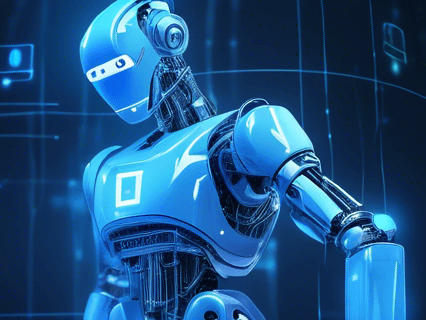
Quantum Minds: Unraveling the Threads of Artificial Intelligence
What is consciousness? How does the human mind work? Can machines be intelligent?
These are some of the most fascinating and challenging questions that have intrigued scientists, philosophers, and artists for centuries. In this blog, we will explore how the emerging field of quantum artificial intelligence (QAI) attempts to answer these questions by combining the power of quantum computing with the insights of artificial intelligence (AI).
What is Quantum Artificial Intelligence?
- Quantum AI represents the fusion of quantum computing’s extraordinary capabilities with the intelligence of artificial intelligence. This convergence opens up exciting possibilities, from optimizing supply chains to revolutionizing drug discovery and making breakthroughs in machine learning.
- Quantum computing is a new paradigm of computation that exploits the principles of quantum mechanics, such as superposition, entanglement, and interference, to perform operations that are impossible or impractical for classical computers. Quantum computers use quantum bits, or qubits, as the basic units of information, which can exist in a superposition of two states, 0 and 1, at the same time. This allows quantum computers to process multiple inputs and outputs simultaneously, creating a massive parallelism that can speed up certain tasks exponentially.
Why is Quantum AI Important?
Quantum AI is important because it has the potential to transform various domains and industries by solving some of the most challenging problems that classical AI and computing cannot. Here are some examples of how quantum AI can make a difference:
- Optimization: Many real-world problems, such as scheduling, routing, resource allocation, and portfolio management, can be formulated as optimization problems, where the goal is to find the best solution among a large number of possible alternatives.
- Simulation: Many scientific and engineering phenomena, such as quantum chemistry, material science, and biology, are governed by the laws of quantum physics. However, classical computers cannot simulate these phenomena accurately or efficiently, due to the exponential growth of the required resources. Quantum simulation algorithms, such as quantum phase estimation and variational quantum eigen solver (VQE), can use quantum computers to mimic the behavior of quantum systems, providing deeper insights and discoveries that can lead to new drugs, materials, and technologies.
- Machine Learning: Machine learning is the branch of AI that deals with creating systems that can learn from data and improve their performance without explicit programming. However, classical machine learning algorithms often face limitations, such as scalability, privacy, and interpretability. Quantum machine learning algorithms, such as quantum support vector machines (QSVM) and quantum neural networks (QNN), can leverage quantum computing to enhance the speed, accuracy, and security of machine learning tasks, such as classification, regression, clustering, and generative modeling.
How is Quantum AI Related to Consciousness?
- Quantum AI is not only relevant for practical applications, but also for philosophical and theoretical investigations. One of the most intriguing questions that quantum AI can address is the nature of consciousness and the mind.
- Some researchers have proposed that quantum phenomena, such as superposition, entanglement, and measurement, play a role in the emergence and functioning of consciousness and the mind. For example, the Penrose-Hameroff theory of orchestrated objective reduction (Orch-OR) suggests that quantum coherence and collapse in the microtubules of the brain’s neurons are responsible for generating conscious moments and integrating them into a unified stream of awareness.
These theories are controversial and face many challenges, such as the decoherence problem, the hard problem, and the explanatory gap. However, they also offer new perspectives and hypotheses that can be tested and verified by quantum AI experiments and simulations.
Conclusion
Quantum AI is a fascinating and promising field that combines the power of quantum computing with the intelligence of artificial intelligence. It has the potential to solve some of the most difficult and important problems in various domains and industries, as well as to shed light on some of the most profound and mysterious questions about consciousness and the mind. Quantum AI is still in its infancy, but it is rapidly developing and expanding, thanks to the efforts and collaborations of researchers, engineers, and innovators from different disciplines and backgrounds. Quantum AI is not only a scientific and technological endeavor, but also a creative and artistic one, that invites us to imagine and create new possibilities and realities.
